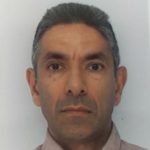 Medicine used to be fun. I could spend time chatting to patients and listening to their ideas, concerns, and expectations. Hopefully, despite their predicament I could bring them hope that we, the “medical profession,” could make a real difference. Has the digital age shattered this ethos?
Medicine used to be fun. I could spend time chatting to patients and listening to their ideas, concerns, and expectations. Hopefully, despite their predicament I could bring them hope that we, the “medical profession,” could make a real difference. Has the digital age shattered this ethos?
William Olser taught us that the key to a diagnosis was in taking a patient’s history, and in examining and listening to the patient. Indeed, in medical school and while preparing for the Practical Assessment of Clinical Examination Skills (PACES) exam as a junior doctor, the importance of “ideas, concerns, and expectations (ICE)” is constantly emphasised. I recently spoke to a core medical trainee (CMT) to ask how her training was progressing and whether she had any concerns that we would need to work on, as she was preparing for her exams. Her reply was, “I know much of the learning is experiential and self-directed, but unfortunately training time is limited. I spend three minutes with the patient and seven minutes in front of the computer.” This gave her little opportunity to develop the skills necessary for the PACES exam.
How can one obtain the necessary clinical experience without spending sufficient time with patients? Without this it is difficult to learn essential clinical skills or develop a “gut feeling” of what might be wrong with a patient. Has the digital age taken over? I enjoy medicine immensely, but I wonder whether technological advances and targets have caused us to drift away from what is essential from both a medical and nursing perspective.
It is also having an impact on morale in the NHS, which is low and in need of re-energising. The most common complaint that I hear is about the amount of paperwork and electronic forms that need completing. I wonder are we heading towards an American system where the average intern makes up to 4000 clicks on his computer per day and the array of investigations trumps the basic, but essential clinical skills of history and examination. It is important that we focus on the most essential skills of a doctor: to be a diagnostician and, at the same time, care for patients in a holistic way. That is not to say that this does not occur, but it is becoming more challenging.
Most recently, the creation of the “electronic board round” has further exacerbated this situation. It involves aimlessly looking at names and reaching a possible diagnosis. Without even seeing the patient, one has to try to understand whether the diagnosis is correct or what might be missing. The patient is not even involved in this process. By the time we have reached the last patient on a long list, it is hard to recall the first lot of patients and give appropriate feedback. It would be a far more useful approach to go round the ward, see the patients, discuss their diagnosis with them, and agree on a management plan with them. Surely the combination of seeing, hearing, and understanding the context is more powerful, but the “traditional ward round and team approach” seems to be outdated.
Sunil Bhandari is a consultant nephrologist at Hull and East Yorkshire Hospitals NHS Trust and an honorary professor at the Hull York Medical School (HYMS). He serves as joint director of the UK advanced nephrology course and the UK applied nephrology course, deputy head of School of Medicine (Health Education England Yorkshire and Humber), and international director for RCPE.